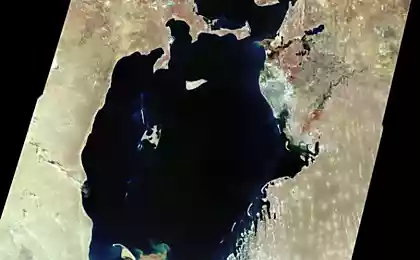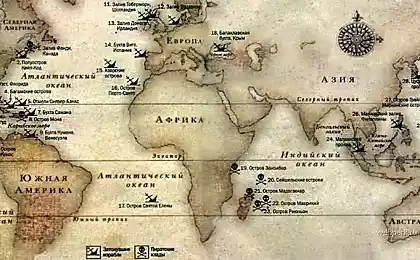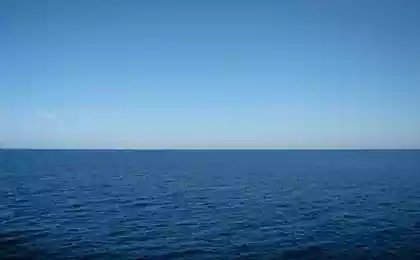990
Oceanographers warn of irreversible changes in the oceans
Oceans need immediate and substantial reduction of greenhouse gas emissions. Otherwise, we will see far-reaching and irreversible consequences - affected marine ecosystems. This предупреждает Research Group initiative "Ocean 2015".
Before the industrial era level of carbon dioxide in the atmosphere was 278 parts per million. Industry raised it by 40 percent to 400 units. Ocean - a natural "refrigerator" of the planet at the same time, "cabinet" for the extra greenhouse gases. It slows the warming of the planet.
For these properties the oceans have paid a high price: the temperature of the water to a depth of seven hundred meters has increased, forcing some species migrate to four kilometers closer to the poles in the last ten years. Increasing levels of carbon dioxide in many regions prevents corals and shellfish form the skeletons of calcium carbonate. Glaciers are melting at an alarming rate, contributing to sea level rise.
If carbon dioxide emissions remain at the 2013 level, ie the amount of 36 billion tons a year, the situation will worsen. By the end of the century it will affect the entire ecosystems of the oceans, which will have consequences for people in the areas in which people use the world's oceans - whether it's hiking, fishing or coastal environment. And the ocean will not be able to continue to minimize the human impact on the environment.
Researchers want to convey these messages to business:
Before the industrial era level of carbon dioxide in the atmosphere was 278 parts per million. Industry raised it by 40 percent to 400 units. Ocean - a natural "refrigerator" of the planet at the same time, "cabinet" for the extra greenhouse gases. It slows the warming of the planet.
For these properties the oceans have paid a high price: the temperature of the water to a depth of seven hundred meters has increased, forcing some species migrate to four kilometers closer to the poles in the last ten years. Increasing levels of carbon dioxide in many regions prevents corals and shellfish form the skeletons of calcium carbonate. Glaciers are melting at an alarming rate, contributing to sea level rise.
If carbon dioxide emissions remain at the 2013 level, ie the amount of 36 billion tons a year, the situation will worsen. By the end of the century it will affect the entire ecosystems of the oceans, which will have consequences for people in the areas in which people use the world's oceans - whether it's hiking, fishing or coastal environment. And the ocean will not be able to continue to minimize the human impact on the environment.
Researchers want to convey these messages to business:
- The ocean influences the climate system and carries an important service to people.
- The anthropogenic impact on the climate impact on key marine and coastal species, which is considerably today. Many of these plants and animals in the coming years will face a high risk, even if one succeeds in reducing emissions.
- We need urgent and substantial reduction of carbon dioxide emissions in order to avoid irreversible consequences for ocean ecosystems and their capacity that person needs.
- As the carbon dioxide in the atmosphere techniques that species used for protection and adjustment become less effective. They do not have time to adjust.
Source: geektimes.ru/post/252986/























